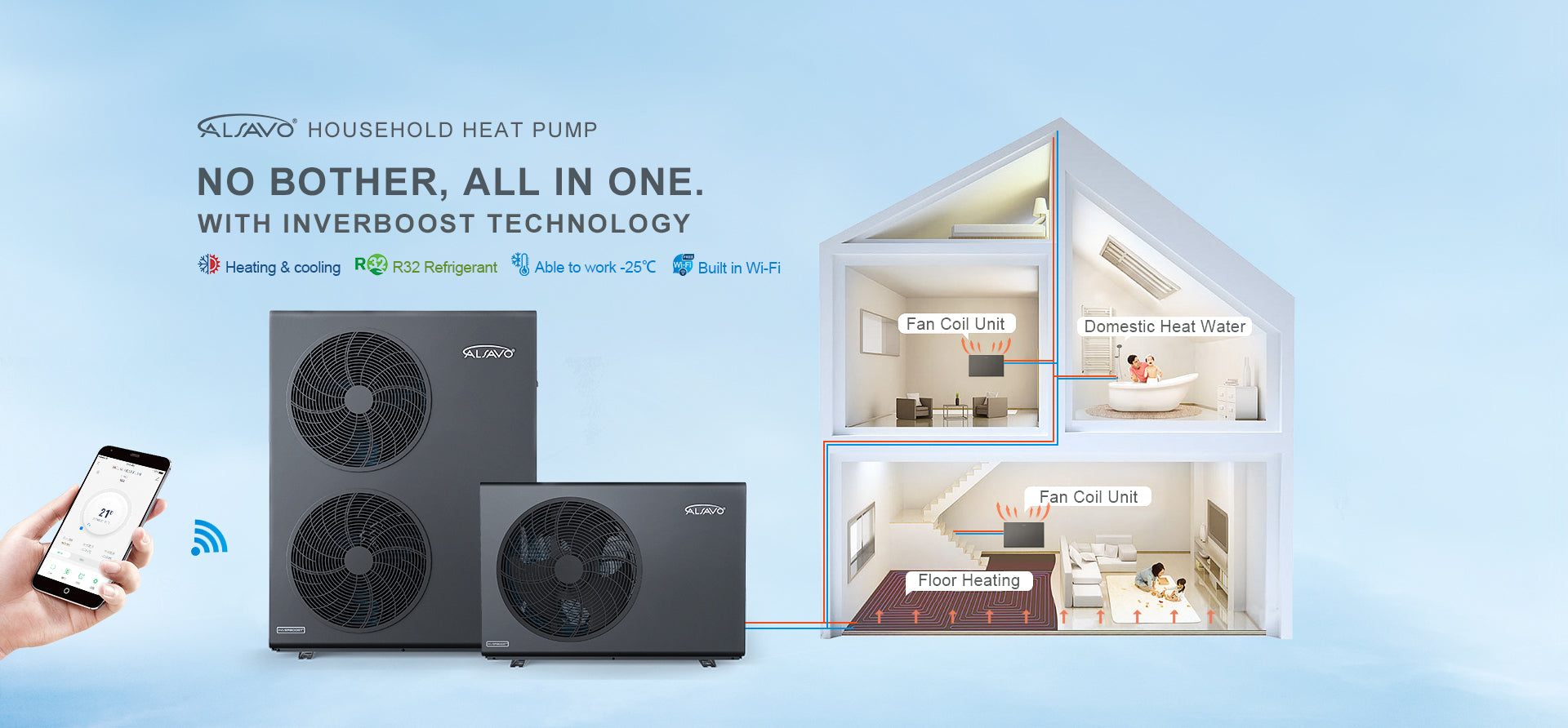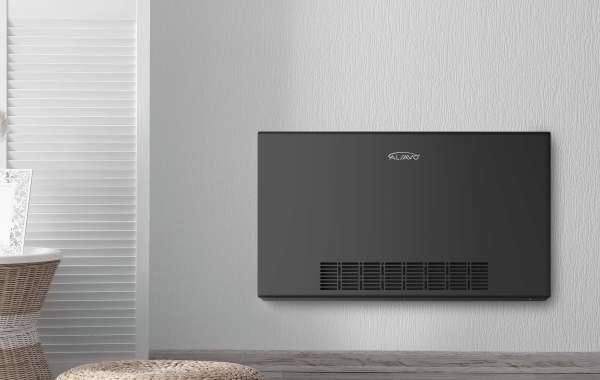The choice between a heat pump and an air conditioner depends on your specific needs, geographical location, and considerations regarding energy efficiency and environmental impact.
What do heat pumps and air conditioners have in common when it comes to protecting the environment?
Heat pumps and air conditioners are two types of HVAC systems that play a crucial role in maintaining indoor comfort. While they serve different purposes, heat pumps and air conditioners share common features and environmental benefits. This article explores the similarities between these systems when it comes to protecting the environment. By examining their energy efficiency, refrigerants, and contribution to reducing greenhouse gas emissions, we can gain a better understanding of how heat pumps and air conditioners contribute to environmental sustainability.
Energy Efficiency: A Common Goal
A.Energy-Efficient Cooling and Heating
Both heat pumps and air conditioners are designed to provide cooling during hot seasons and heating during colder periods. They achieve this by transferring heat from one location to another. By leveraging the principles of thermodynamics, these systems can move heat from indoor spaces to the outside during cooling mode and reverse the process during heating mode.
B.Similar Operating Principles
Heat pumps and air conditioners utilize similar components, such as compressors, coils, and refrigerants, to facilitate the heat transfer process. This similarity in operational principles allows for effective energy management and conservation.
Environmentally Friendly Refrigerants
A.The Phasing Out of Ozone-Depleting Substances
In the past, both heat pumps and air conditioners commonly used refrigerants known as chlorofluorocarbons (CFCs) and hydrochlorofluorocarbons (HCFCs). These substances were found to have adverse effects on the ozone layer, contributing to ozone depletion. In response, international agreements such as the Montreal Protocol mandated the phase-out of CFCs and HCFCs.
B.Transition to Low Global Warming Potential (GWP) Refrigerants
Both heat pumps and air conditioners now utilize refrigerants with lower global warming potential, such as hydrofluorocarbons (HFCs) and hydrofluoroolefins (HFOs). These refrigerants have reduced environmental impact and contribute less to global warming potential compared to their predecessors. Furthermore, ongoing research aims to develop and adopt refrigerants with even lower GWP or more environmentally friendly alternatives, such as natural refrigerants.
Energy Efficiency and Emissions Reduction
A.Enhanced Energy Efficiency
Heat pumps and air conditioners have made significant strides in improving their energy efficiency over the years. Advancements in technology, such as variable-speed compressors and improved heat exchangers, have led to greater energy savings. By reducing energy consumption, these systems help minimize the environmental impact associated with electricity generation.
B.Reduced Greenhouse Gas Emissions
The increased energy efficiency of heat pumps and air conditioners directly contributes to the reduction of greenhouse gas emissions. By consuming less electricity, these systems help lower the demand for fossil fuel-based power generation. Additionally, the transition to low-GWP refrigerants further reduces indirect emissions, as refrigerants with lower GWP have a reduced potential to contribute to climate change.
Renewable Energy Integration
A.Synergy with Renewable Energy Sources
Both heat pumps and air conditioners can synergize with renewable energy sources, such as solar or geothermal energy. By harnessing clean and sustainable energy, these systems further minimize their environmental impact. Heat pumps, in particular, excel in this aspect by using electricity to transfer heat rather than generating it, making them ideal for integration with renewable energy systems.
B.Demand Response and Grid Stabilization
Heat pumps and air conditioners have the potential to contribute to demand response programs. These programs incentivize users to adjust their energy consumption during peak demand periods, reducing strain on the electrical grid. By participating in demand response, these systems can aid grid stabilization efforts and promote efficient electricity usage  heat pump
heat pump
Is a heat pump or an air conditioner better for the environment?
When considering the environmental impact of heat pumps and air conditioners, it is important to evaluate various factors to determine which system is better suited for the environment. Here's a breakdown of their environmental implications:
Energy Efficiency: heat pump companies are generally more energy-efficient than air conditioners. Heat pumps can provide both heating and cooling by transferring heat from one location to another, whereas air conditioners only provide cooling. The energy efficiency of heat pumps can result in lower electricity consumption and reduced greenhouse gas emissions compared to air conditioners.
Refrigerants: Both heat pumps and air conditioners have transitioned from ozone-depleting refrigerants, such as chlorofluorocarbons (CFCs) and hydrochlorofluorocarbons (HCFCs), to more environmentally friendly alternatives with lower global warming potential (GWP). The use of low-GWP refrigerants in both systems helps minimize their contribution to climate change.
Heating Capability: air source heat pump have an advantage over air conditioners when it comes to heating. Heat pumps can extract heat from outdoor air, ground, or water sources, making them more energy-efficient for heating purposes. This reduces the reliance on fossil fuel-based heating systems, which contribute to greenhouse gas emissions.
Climate Considerations: The effectiveness of heat pumps and air conditioners can vary depending on the climate. Heat pumps are particularly efficient in moderate climates, where they can provide both heating and cooling with high energy efficiency. However, in colder climates, the efficiency of air-source heat pumps may decrease as the outdoor temperature drops significantly, requiring supplemental heating. In such cases, the overall environmental impact can depend on the type of backup heating used.
Energy Source: The environmental impact of heat pumps and air conditioners also depends on the energy sources used to power them. If the electricity grid relies heavily on fossil fuels, the environmental benefits of heat pumps or air conditioners may be diminished. However, if the electricity comes from renewable energy sources, both systems can contribute to reducing greenhouse gas emissions.
Considering these factors, heat pumps generally have a lower environmental impact compared to air conditioners, particularly due to their energy efficiency and the potential for renewable energy integration. However, the specific environmental benefits can vary depending on climate conditions, energy sources, and the efficiency of the systems.
It is crucial to note that ongoing research and advancements in technology aim to further improve the environmental performance of both heat pumps and air conditioners. To make the most environmentally conscious decision, it is recommended to consider the specific context, consult with HVAC professionals, and prioritize energy efficiency and the use of low-GWP refrigerants.








